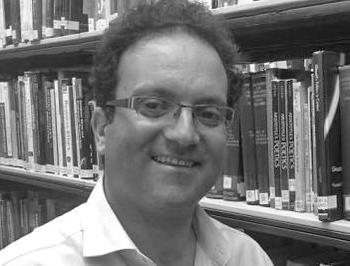Dr. Yazid Said

Eberhard Karls University of Tübingen
Center for Islamic Theology
Dr Yazid Said is the teach@tuebingen Fellow at the Centre for Islamic Theology in the University of Tuebingen. He studied English Literature and Classical Arabic at the Hebrew University in Jerusalem and Christian Theology at the University of Cambridge. After being ordained an Anglican priest, he completed his PhD at the University of Cambridge (2010) on the medieval Muslim Theologian Abu Hamid al-Ghazali. He subsequently held a post-doctoral fellowship (2010-2011) at McGill University in Canada and the Woods-Gumble fellowship at the Tantur Ecumenical Institute in Jerusalem (2011-2012). From February 2013-December 2014, he was lecturer in Islamic Studies at Mater Dei Institute of Education in Dublin. His research is focused on medieval Muslim political and legal thought and on Christian-Muslim theological encounters as well. He is the author of Ghazali's Politics in Context (Routledge 2012).
The place of Greek philosophy in Islamic thought
This course aims to introduce students to the contemporary study of Islamic philosophy and theology, the place of the Greek intellectual heritage in Islamic thought, and the major methods used in this study. Whilst Islamic philosophy has often been considered by some as part of the general study of philosophy, distinct from Islamic discursive theology, Kalam, there has also been a great surge of activity in the field with attendant argument about what should be the proper focus and method of such a work. Most contemporary studies of Falsafa recognize that much of Islamic philosophy is original, that one of its chief preoccupations (Reason vs Religion) was a wholly new subject untreated by the Greeks and that the influence of the Falasifa was much wider than previously imagined. The course will examine the translation movement and transmission of Greek thought into Arabic, the different methods of contemporary studies of Islamic philosophy as they are deployed to deal with the writings of Kindi (d. 870), Alfarabi (d. 950) and Avicenna (d. 1037). It goes on to examine how the Ash’arite theologian, Ghazali (d. 1111) reacted to the various philosophical systems, the differences and similarities between him and Averroes (d. 1198), and the more important directions in philosophy after Ghazali with particular reference to Henry Corbin and the Illuminationist school of post-Avicennan philosophers.
- Medieval Islamic political and legal thought
- Abu Hamid al-Ghazali
- Muslim Christian relations